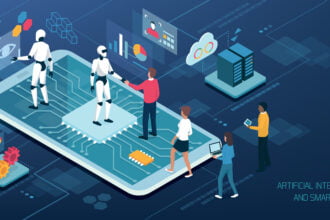It is almost religious orthodoxy in the tech community that “open” is better than “closed.” For example, there have widespread complaints about Apple’s “closed” iPhone app approval process. People also argue Apple is making the same strategic mistake all over again versus Android that it made versus Windows*. The belief is that Android will eventually beat the iPhone OS with an “open” strategy (hardware-agnostic, no app approval process) just as Windows beat Apple’s OS in the 90’s.
With respect to requiring apps to be approved, consider the current state of the iPhone platform. There are over 100,000 apps…
It is almost religious orthodoxy in the tech community that “open” is better than “closed.” For example, there have widespread complaints about Apple’s “closed” iPhone app approval process. People also argue Apple is making the same strategic mistake all over again versus Android that it made versus Windows*. The belief is that Android will eventually beat the iPhone OS with an “open” strategy (hardware-agnostic, no app approval process) just as Windows beat Apple’s OS in the 90’s.
With respect to requiring apps to be approved, consider the current state of the iPhone platform. There are over 100,000 apps and thus far not a single virus, worm, spyware app etc. (I don’t count utterly farfetched theoretical scenarios). As a would-be iPhone developer, I can report firsthand that the Apple approval process is a nightmare and should be overhauled. But what’s the alternative? Before the iPhone, getting your app on a phone meant doing complicated and expensive business development deals with wireless carriers. At the other end of the spectrum: If the iPhone OS were completely open, would we really have better apps? What apps are we missing today besides viruses?
With respect to the strategic issue of tightly integrating the iPhone/iPad software and hardware, a strong case can be made that Apple’s “closed” strategy is smart. Clay Christensen has given us the only serious theory I know of to predict when it’s optimal for a company to adopt an open versus closed strategy for (among other things) operating systems. The basic idea is that every new tech product starts out undershooting customer needs and then – because technology gets better faster than customers needs go up – eventually “overshoots” them. (PC’s have overshot today – most people don’t care if the processors get faster or Windows adds new features). Once a product overshoots, the basis of competition shifts from things like features and performance to things like price.
The key difference today between desktop computers and mobile devices is that mobile devices still have a long way to go before customers don’t want more speed, more features, better battery life, smaller size, etc. Just look at all the complaints yesterday about the iPad – that it lacks multitasking, a camera, is too heavy, has poor battery life, etc. This despite the fact that Apple is now even building their own semiconductors (!) to squeeze every last bit of performance out of the iPad. Until mobile devices compete mainly on price (probably a decade from now), tight vertical integration will produce the best device and is likely the best strategy.
*It’s worth noting that Steve Jobs wasn’t the one who screwed up Apple. Jobs co-founded Apple in 1976. He was pushed out in in May 1985 when the company was valued at about $2.2B. He returned in 1996 when Apple was worth $3B. Today it is worth $187B.









